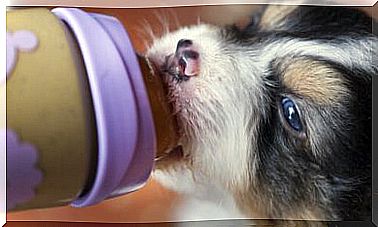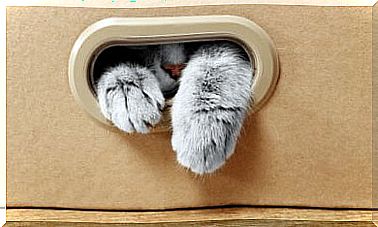Vitamins And Calcium In Iguanas
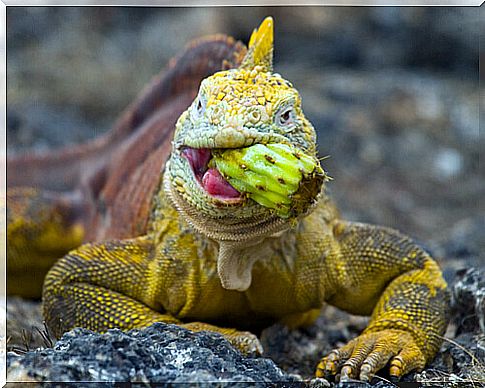
Having a pet involves a lot of responsibility and various cares. And in the case of exotics we must pay more attention to their special requirements. In this article we will tell you all about the lack of vitamins and calcium in iguanas, and how to reverse it.
Lack of vitamins and calcium in iguanas?
Since iguanas only ‘became’ pets, we still need to learn a lot about them. One of the main problems that these reptiles present is the lack of certain nutrients due to an unbalanced diet.
Veterinarians are struck by the fact that a large part of the population has a disease called osteodystrophy or metabolic bone disease, which is caused by a lack of calcium in the body.
Mainly, this problem appears in the first months after the arrival of the iguana at home, especially if it is a young specimen. The bones undergo a progressive decalcification and this produces a deformity in the jaw (it is shorter than the upper jaw) and in the extremities (they give it a more robust appearance).
Another symptom of osteodystrophy is an increased risk of fractures in the front and hind legs, lameness, lumps in the limbs, and even paralysis. Even when the latter happens, the iguana presents constipation and a bulging abdomen due to the fact that it cannot properly eliminate stool and gas.
This pathology can be caused by several factors, such as little contact with sunlight and ultraviolet rays that activate vitamin D and allow the animal to absorb calcium from the intestine. This also happens when the iguana is kept for a few hours under the fluorescent light that is installed in the fish tanks.
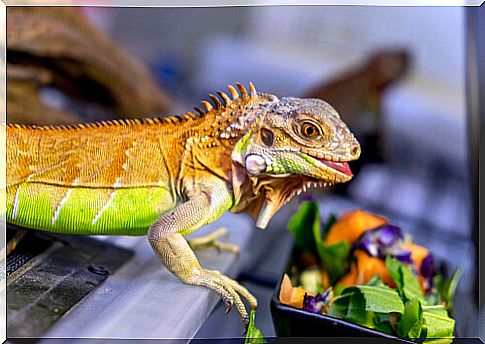
Unfortunately, many iguanas do not receive adequate food or live in conditions that are far from ideal. This does not mean that the owners do it on purpose, but sometimes ignorance is very dangerous.
How to avoid or reduce the lack of vitamins and calcium in iguanas?
As a first measure, it is very important to consult a veterinarian to indicate what the proper diet should be for your pet, regardless of what species it belongs to.
If you have recently adopted an iguana, then you will have to inform yourself very well about all its needs, not only food, but also in terms of exposure to sunlight. Do not forget that it is a cold-blooded reptile and that it needs heat to raise its body temperature.
Some doctors will indicate to administer a supplement of calcium or vitamins and, in that case, we must comply with what is prescribed to the letter. Likewise, that does not mean that we can ‘forget’ to offer varied and quality food to our pet.
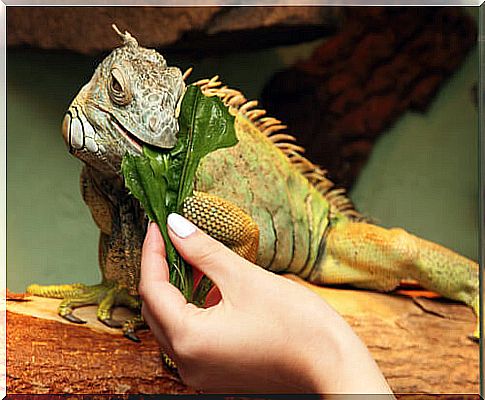
Usually, the weekly dose of vitamins for a young iguana – up to two years old – is twice and for an adult iguana only once. You may have read that there are some vitamin sprays for reptiles, which are applied to the skin, but it has not been proven that they are effective and can solve a serious health problem.
The best thing to do when there is a lack of vitamins or calcium in iguanas is to offer them a balanced diet according to their needs. Note that these now domesticated reptiles are herbivores. This means that they do not eat insects or animals of any kind.
Finally, we advise you that among the vegetables that you offer, those that provide the most vitamins and calcium are never lacking: lettuce, beets, chard, cabbage and parsley. To a lesser extent, provide cucumber, tomato, zucchini, and bell pepper. Suitable fruits are strawberry, banana, apple, pear, and melon.
